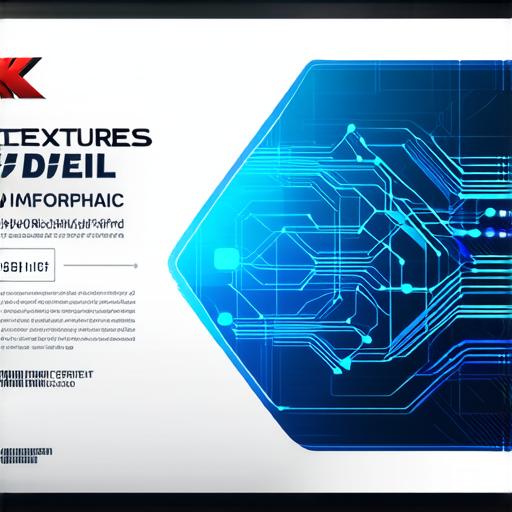What is Blockchain Certification?
Blockchain certification refers to a credential or qualification that validates an individual’s knowledge and skills in blockchain technology. It’s an official recognition of one’s competence in designing, developing, and implementing blockchain solutions. The certification process typically involves passing an exam or completing a course on blockchain technology.
The purpose of blockchain certification is to ensure that individuals have the necessary expertise to work with blockchain technology effectively. It also helps organizations identify potential candidates for blockchain-related jobs.
Why does Blockchain Certification Matter?
Blockchain certification matters because it provides a standardized way of measuring an individual’s knowledge and skills in blockchain technology. The following are some reasons why blockchain certification is essential:
- Increased demand for blockchain professionals: With the increasing adoption of blockchain technology, there is a growing need for skilled professionals to design, develop, and implement blockchain solutions. Blockchain certification can help individuals stand out in the job market and attract potential employers.
- Improved career opportunities: Blockchain certification can open up new career opportunities for developers. It can lead to higher salaries and better job security as organizations are willing to pay a premium for qualified professionals.
- Better industry recognition: A blockchain certification can provide individuals with industry recognition, which can help them build their professional network and credibility within the industry.
- Enhanced learning opportunities: Blockchain certification provides an opportunity for developers to learn from experts in the field and gain a deeper understanding of blockchain technology. It also exposes individuals to new tools and techniques that they can use to develop more innovative solutions.
Types of Blockchain Certifications
There are several types of blockchain certifications available, including:
Ethereum developer certification:
This certification is designed for developers who want to specialize in developing decentralized applications (DApps) using the Ethereum platform.
Hyperledger developer certification:
This certification is designed for developers who want to work with Hyperledger, an open-source blockchain framework that enables organizations to create secure and scalable distributed ledgers.
Certified blockchain professional (CBP):
The CBP certification is a comprehensive program that covers various aspects of blockchain technology, including design, development, and implementation. It’s designed for professionals who want to gain a broad understanding of blockchain technology and its applications in different industries.
Blockchain developer bootcamp:
This certification program is designed for individuals who are new to blockchain technology and want to learn the fundamentals of blockchain development.
Real-life Examples of Blockchain Certification in Action
Blockchain certifications have already had a significant impact on various industries worldwide. Here are some real-life examples:
- IBM’s Food Trust: IBM’s Food Trust is an example of how blockchain certification can be used to enhance supply chain management. The platform uses blockchain technology to track food products from farm to table, ensuring that the products meet safety and quality standards. The platform also relies on blockchain developers who have completed IBM’s blockchain developer bootcamp to maintain and update the system.
- Walmart’s Traceability System: Walmart has implemented a blockchain-based traceability system to track the origin of food products in its stores. The system uses blockchain technology to verify the authenticity of food products and ensure that they meet safety standards. Walmart relies on certified blockchain professionals who have completed IBM’s CBP program to maintain and update the system.
- Microsoft’s Azure Blockchain: Microsoft’s Azure Blockchain is an example of how blockchain certification can be used to enhance supply chain management in the healthcare industry. The platform uses blockchain technology to track medical supplies and ensure that they are authentic and safe for use. The platform relies on blockchain developers who have completed Microsoft’s blockchain developer certification program to maintain and update the system.

FAQs
Q: What are the benefits of blockchain certification?
Blockchain certification provides individuals with a standardized way of measuring their knowledge and skills in blockchain technology. It also helps organizations identify potential candidates for blockchain-related jobs, improves career opportunities, enhances learning opportunities, and provides better industry recognition.
Q: What are the different types of blockchain certifications available?
There are several types of blockchain certifications available, including Ethereum developer certification, Hyperledger developer certification, Certified blockchain professional (CBP), and Blockchain developer bootcamp.
Q: How can organizations benefit from blockchain certification?
Organizations can benefit from blockchain certification by identifying potential candidates for blockchain-related jobs, improving their career opportunities, enhancing their learning opportunities, and providing better industry recognition.
Conclusion
Blockchain certification is an essential tool for individuals who want to work with blockchain technology effectively. It provides a standardized way of measuring one’s knowledge and skills in blockchain technology, enhances career opportunities, and provides better industry recognition. As the demand for blockchain professionals grows, it’s crucial to understand what blockchain certification means and why it matters. By obtaining blockchain certification, individuals can stand out in the job market and attract potential employers, opening up new career opportunities and improving their earning potential.
